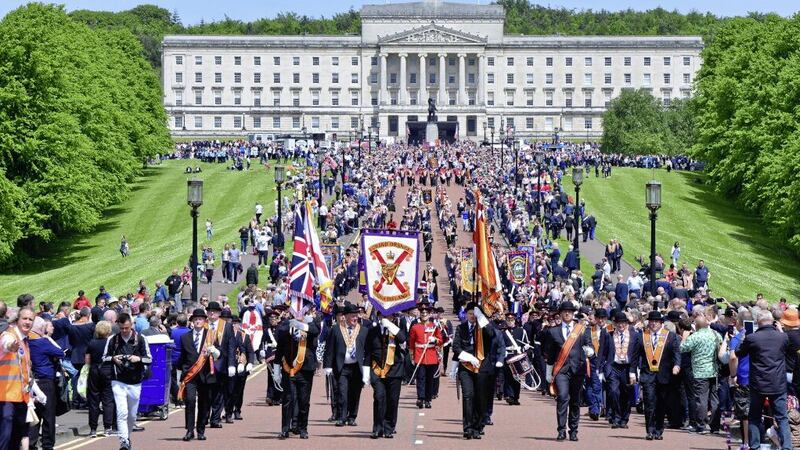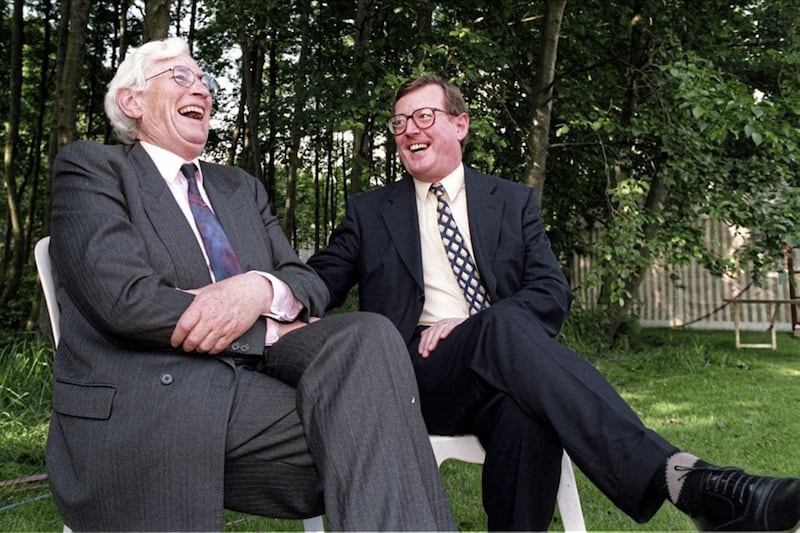IRELAND'S Catholic bishops are in consultation mode. It is fair to say that the hierarchy has not traditionally enjoyed a close association with the practice of inviting lay people to express their views on various Church matters, so this deserves be seen as a positive development.
They are asking for input in two areas. First, the bishops are seeking submissions about a proposed revision of the Lectionary for Mass, which is essentially a Bible edited for ease of proclamation during the liturgy.
The Irish bishops are considering whether to adopt the Revised New Jerusalem Bible, which uses inclusive language where possible.
In contrast, their counterparts in Britain have already opted for the English Standard Version. Some controversy has ensued over claims of masculine bias in its language.
This might seem arcane stuff, but few things within the Church have the capacity to provoke more controversy than matters liturgical.
As someone reminded me recently, there is an important difference between a liturgist and a terrorist: you can negotiate with a terrorist...
Second, the bishops have pledged to hold a 'National Synod Assembly' within five years, and want to hear views about how it should look as they embark on a two-year period of "prayer, listening and discernment".
There have long been calls for a gathering of clergy and lay people to chart a way ahead in an Ireland which, north and south, is not only radically different from the era when Archbishop John Charles McQuaid wielded his crozier but also from how it looked even 10 years ago.
This might seem arcane stuff, but few things within the Church have the capacity to provoke more controversy than matters liturgical. There is an important difference between a liturgist and a terrorist: you can negotiate with a terrorist...
The word 'synod' comes from the Greek for 'assembly' but also points to the idea of 'walking together'. For Irish Catholics, a synodal approach to collaboration between laity and clergy remains an unfulfilled promise of the Second Vatican Council.
Synodality is a key theme of Pope Francis. He sees it as a way of helping the Church face up to the challenges of modern times.
In that sense, it's an expression of the Vatican II challenge of aggiornamento, of the Church working out how it should reach the world around it in a spirit of mission.
The Pope has said synods shouldn't involve adversarial discussion in a parliamentary sense.
As Bishop of Derry Donal McKeown puts it, the synod won't be an event where "power blocks square up to each other to win votes and promote their human agenda or the popular ideas in secular society".
What it will be is, however, rather less clear at this admittedly early stage. We can assume that it will reflect a set of challenges candidly set out by the bishops.
These include secularisation, with its associated "major decline in practice of the faith", and the "shocking revelations" of clerical abuse and mother and baby homes.
They draw attention to the "need to promote peace-making and a culture of welcome" in the context of a century of partition and contemporary migration.
More needs to be done to connect with young people, while Covid-19 restrictions have highlighted the importance of "the family as the 'domestic Church'".
The contribution of women must be honoured and there needs to be "new models of co-responsibility and leadership involving all lay people - women and men".
They talk about "listening to the cry for transparency", and for "greater participation and accountability in the Church".
The bishops also say they want to hear the views of the many people who have left Church behind "and in some cases feel ignored, excluded or forgotten": "We need to hear their voices."
Whether the synod ends up being a talking shop or the start of a brave new era for the Catholic Church will depend on how serious the bishops are about meeting the test they have set themselves by listening to voices from without as well as within.
For now, they are asking how the conversation should begin. You can let them know via catholicbishops.ie/synod.










